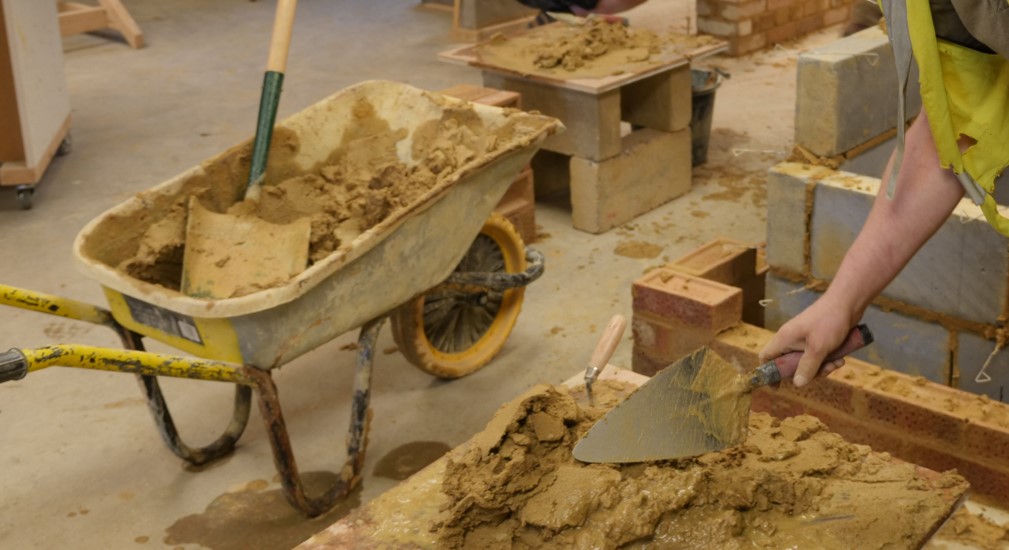
Bricklayers form an essential part of just about any construction site and without their experience and know-how, most projects would come to a complete standstill.
It comes as little surprise, then, that the profession remains in extremely high demand, with recent research by the Construction Skills Network (CSN) (via Construction Management) finding that bricklayers are expected to be of the four most in-demand trades in the coming years.
Driven largely by the increasing rates of housebuilding, the CSN has forecast that an additional 1,450 bricklayers will be needed each year over the next five years.
That means for anyone who may have been considering a career as a bricklayer, now could be the perfect time to begin your training.
What does a bricklayer do?
The daily tasks facing a bricklayer can vary depending on the environment you work in, though the typical tasks tend to include:
- Measuring work areas and setting out the first rows of bricks or blocks
- Mixing mortar by hand or with a mechanical mixer
- Using a trowel to lay bricks and mortar
- Shaping and trimming bricks using hammers, chisels and power tools
- Checking that rows are straight using spirit levels, laser levels or plumb lines
Why are training and qualifications so important to the profession?
Given the nature of working in construction and on-site, health and safety have to be at the forefront of everything you do, and something this vital should be taught by a qualified instructor..
For bricklayers who want to work on-site, you’ll need to hold a CSCS Card. To register for this you’ll need to pass a health, safety and environment test (HS&E).
Bricklaying courses at Able Skills
Introduction to Bricklaying: An ideal choice for anyone wanting to gain basic bricklaying skills. This course is entirely hands-on, assured by City & Guilds and opens up the possibility of more advanced training.
Advanced Bricklaying Course: A five-day course that builds on the basic knowledge gained from the introductory bricklaying course. Participants will learn more advanced techniques, while also improving their speed.
Accredited Bricklaying Course: A bespoke programme designed by expert Able Skills tutors based on the latest requirements of the industry. This course is specifically designed to ensure candidates learn the skills that are essential to gaining work.
City & Guilds Bricklaying Course: A three-week basic bricklaying course that allows candidates to obtain a City & Guilds certificate.
NVQ Level 2 Bricklaying Course: An eight-week course that prepares candidates for building site employment, supported with a City & Guilds qualification and a route to NVQ Level 2.
Experienced Bricklayers who need NVQ: Aimed at bricklayers who have been working in the industry for some time, but who do not have the formal qualifications to show for it. No assessments are required, just a profiling session at Able Skills, some evidence gathered by yourself and a practical test to confirm your competence.
Work-Based Assessments for Bricklaying NVQ Level 2: For bricklayers who have been working for less than five years, Able Skills can arrange the necessary work-based assessments required for NVQ Level 2.
Level 2 Bricklaying Diploma: A City & Guilds accredited Level 2 Diploma that mixes practical and theory-based assessments — aimed at those wanting to come straight in at Level 2.
Testimonials
“Course was evenly conducted with recognised progress being witnessed daily. The instructors were fabulous. They were constantly checking the work and providing professional guidance. I now am more confident with applying these skills.”
- Dennis A Deane, Introduction to Bricklaying
“I followed the bricklaying introduction. Very impressive the amount of learning for barely a week. Very happy they also accommodate the learning according to the building projects I have.”
- Arnaud Lansman, Introduction to Bricklaying
Flexible bricklaying training
Able Skills aims to make trade training as accessible and inclusive as possible, and we understand that traditional training courses simply aren’t feasible for everyone. That’s why many of our courses can be completed on a flexible, part-time basis. For anyone travelling to complete their training, we also offer affordable accommodation close to the training centre.